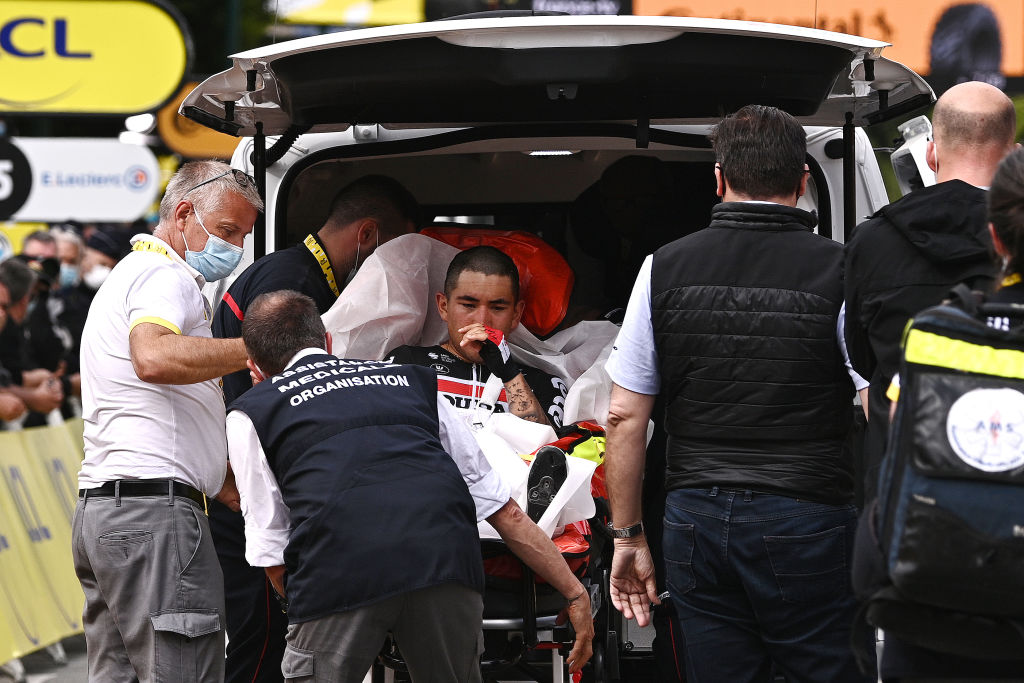UCI president blames Tour de France crashes 'above all' on riders and tension in peloton
Lappartient says 'the majority of crashes are due to a lack of attention'

UCI president David Lappartient has denied that the design of the course on stage 3 of the Tour de France had anything to do with the numerous crashes that shook up the peloton and left a large number of riders injured.
Lappartient, who comes from the finish town of Pontivy, has also responded to the criticisms of cycling’s “international authorities” made by Groupama-FDJ’s director Marc Madiot on French TV. Madiot claimed that, amongst others, cycling’s governing bodies had failed to provide solutions to the fraught, crash-filled, finales that the Tour has seen on two of its opening stages and warned that there could soon be deaths if the situation continued.
“He gets carried away all the time. Cycling is cycling, although I suffer when I see the riders fall. If he still wants races to reach city centers, it has to be accepted that it is a little more technical,” Lappartient told Ouest France.
Lappartient said that the speed of the finale was logical given the finish was at the bottom of a climb. He also told the newspaper that neither Primož Roglič (Jumbo-Visma) or Caleb Ewan (Lotto Soudal) crashed “a priori” – “in principle” – on their own.
Playing down the possible risks, Lappartient said: “The roads were fine, a constant width and there were no traffic islands. It was technical, but there was a nice finishing straight, it’s just that everybody was going fast because Pontivy is at the bottom of a steep valley."
“Above all, the peloton was very nervous, Roglic a priori was alone” – presumably a way of saying he was not in contact with other riders – “when he fell, Ewan was alone.”
Warming to his case, Lappartient told the newspaper: “the majority of crashes are due to a lack of attention but I can understand them [the riders], they are so stressed out during the entire day. And inevitably it’s edgy [in the peloton], everybody wants to be up there [at the front], and there’s not enough space for everybody. But I don’t think one should blame that on the route.”
Lappartient’s comments will likely add fuel to a heated ongoing debate as to what solutions are possible to the series of crashes that plagued the final parts of stages one and three of the Tour.
The latest race content, interviews, features, reviews and expert buying guides, direct to your inbox!
No comment or questions appear in the interview regarding a possible extension of the neutralised final section to eight kilometres from the line, as suggested by Tim de Clerq (Deceuninck-Quick Step) before the stage began.
Cyclingnews is the world's leader in English-language coverage of professional cycling. Started in 1995 by University of Newcastle professor Bill Mitchell, the site was one of the first to provide breaking news and results over the internet in English. The site was purchased by Knapp Communications in 1999, and owner Gerard Knapp built it into the definitive voice of pro cycling. Since then, major publishing house Future PLC has owned the site and expanded it to include top features, news, results, photos and tech reporting. The site continues to be the most comprehensive and authoritative English voice in professional cycling.